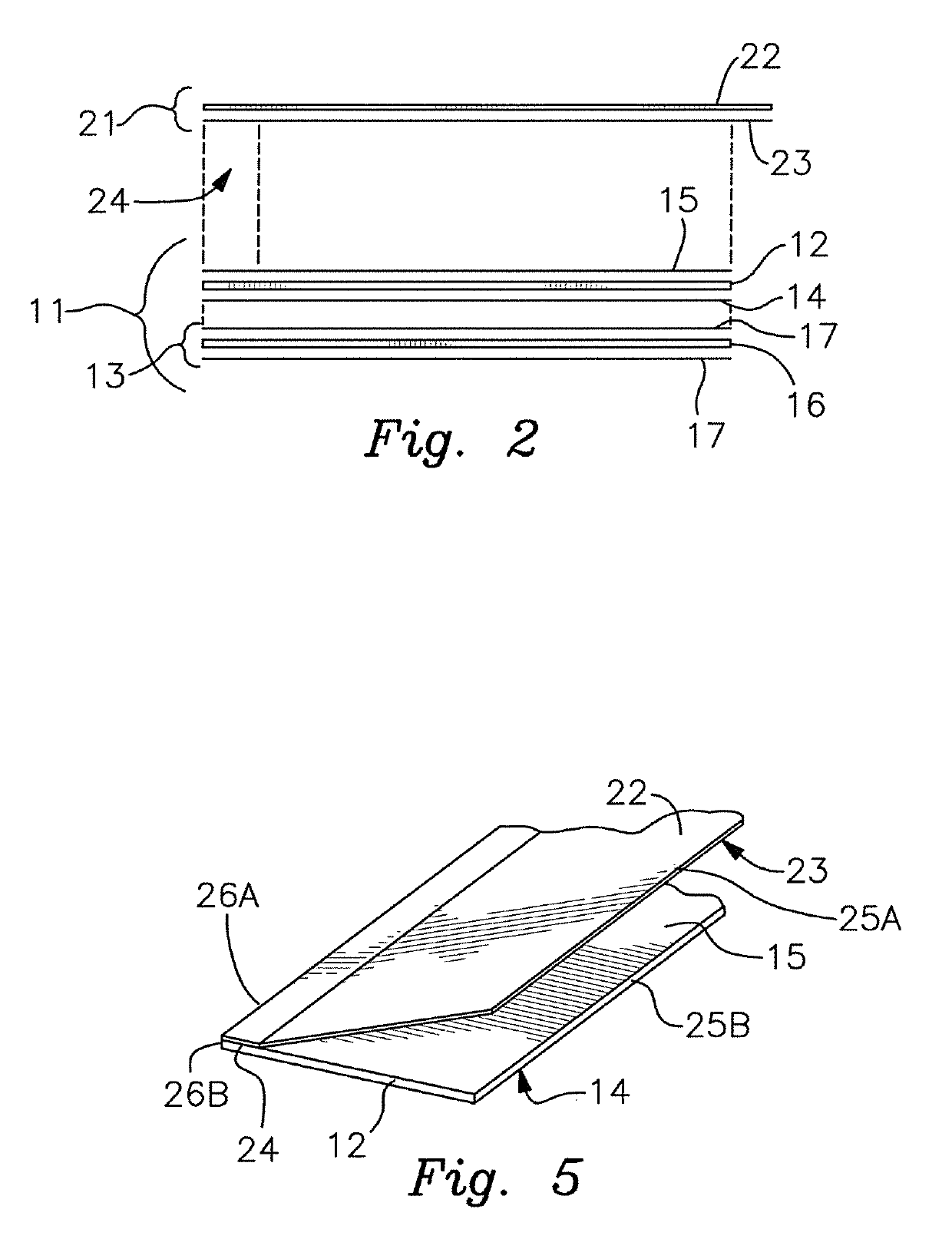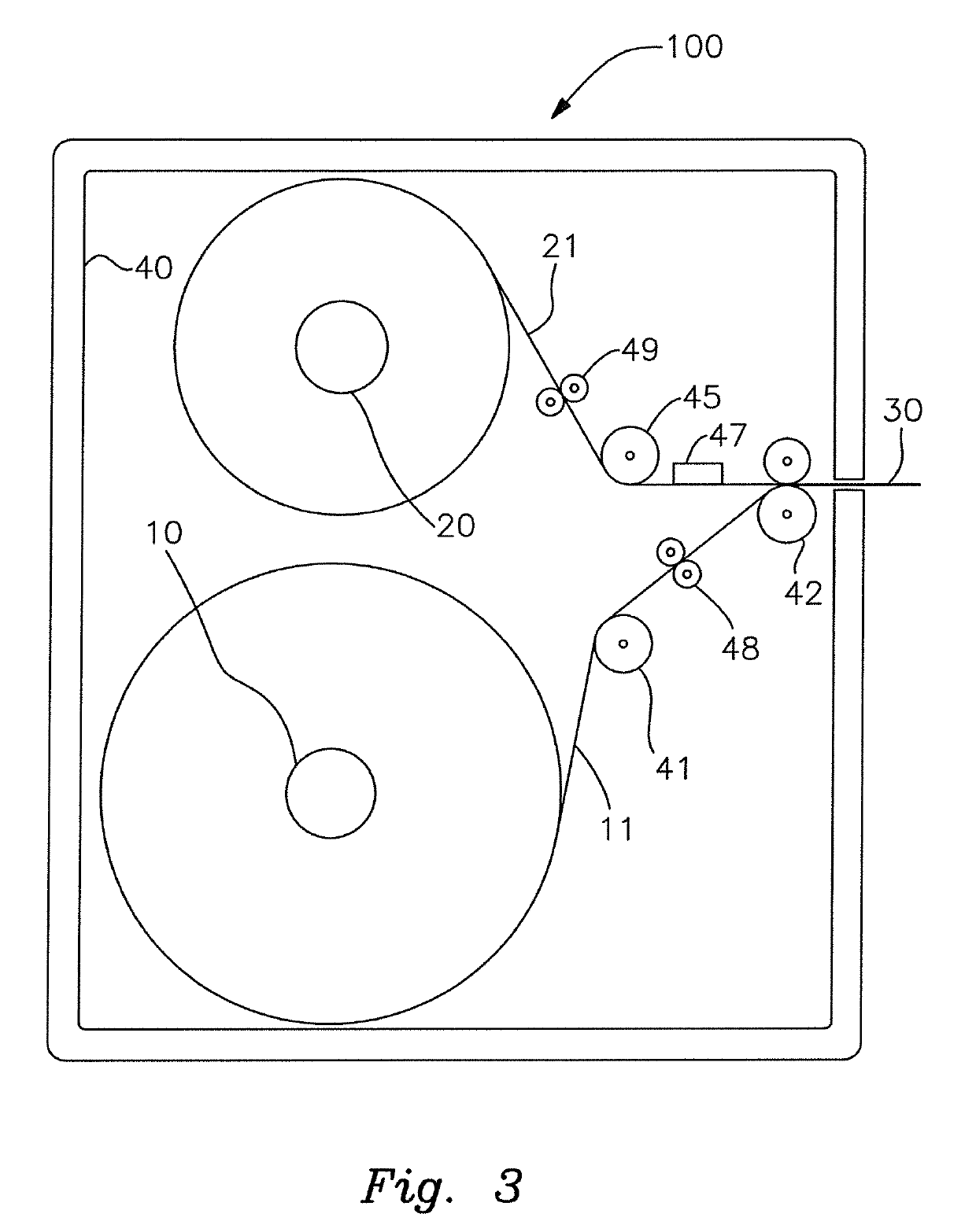Dispenser apparatus and method of use for laminating and dispensing transfer tape in a paper web turn-up system
a technology of dispenser apparatus and turn-up system, which is applied in the direction of web handling, transportation and packaging, thin material handling, etc., can solve the problems of weakened or even substantially blinded adhesion, failure to transfer, and difficult high-speed transfer of lightweight paper webs, so as to prevent strong adhesion of the majority, prevent strong adhesion, and increase the width of the cover flap member
- Summary
- Abstract
- Description
- Claims
- Application Information
AI Technical Summary
Benefits of technology
Problems solved by technology
Method used
Image
Examples
Embodiment Construction
[0039]With reference to the drawings, which are provided for illustrative and descriptive purposes and which are not meant to be limiting as to the scope of the invention, the invention in general embodiments comprises an apparatus and a method for assembling, i.e., laminating, and dispensing a multi-layer adhesive tape, and in particular wherein the multi-layer adhesive tape is a transfer tape used in a paper web turn-up operation, wherein a continuous paper web being rolled onto a first spool is severed and transferred to an empty spool when the first spool is fully wound, the transfer occurring without requiring the flow of the paper web to be temporarily altered, slowed or stopped. Multiple embodiments of the apparatus and method which produce different transfer tapes are illustrated and described. It is to be understood that disclosure of the apparatus and method in relation to a paper web turn-up operation is an exemplary disclosure not meant to be limiting, as the dispenser s...
PUM
| Property | Measurement | Unit |
|---|---|---|
| widths | aaaaa | aaaaa |
| width | aaaaa | aaaaa |
| pressure sensitive | aaaaa | aaaaa |
Abstract
Description
Claims
Application Information
 Login to View More
Login to View More - Generate Ideas
- Intellectual Property
- Life Sciences
- Materials
- Tech Scout
- Unparalleled Data Quality
- Higher Quality Content
- 60% Fewer Hallucinations
Browse by: Latest US Patents, China's latest patents, Technical Efficacy Thesaurus, Application Domain, Technology Topic, Popular Technical Reports.
© 2025 PatSnap. All rights reserved.Legal|Privacy policy|Modern Slavery Act Transparency Statement|Sitemap|About US| Contact US: help@patsnap.com



